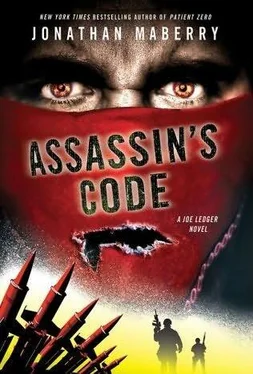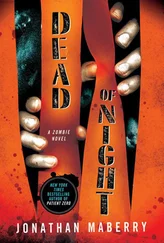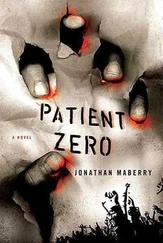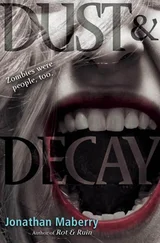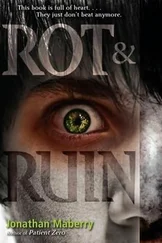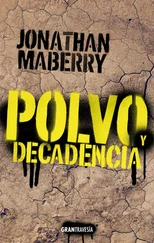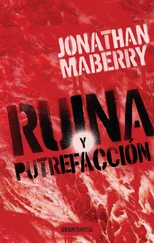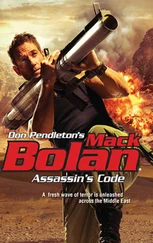Jonathan Maberry - Assassin's code
Здесь есть возможность читать онлайн «Jonathan Maberry - Assassin's code» весь текст электронной книги совершенно бесплатно (целиком полную версию без сокращений). В некоторых случаях можно слушать аудио, скачать через торрент в формате fb2 и присутствует краткое содержание. Жанр: Триллер, на английском языке. Описание произведения, (предисловие) а так же отзывы посетителей доступны на портале библиотеки ЛибКат.
- Название:Assassin's code
- Автор:
- Жанр:
- Год:неизвестен
- ISBN:нет данных
- Рейтинг книги:4.5 / 5. Голосов: 2
-
Избранное:Добавить в избранное
- Отзывы:
-
Ваша оценка:
- 100
- 1
- 2
- 3
- 4
- 5
Assassin's code: краткое содержание, описание и аннотация
Предлагаем к чтению аннотацию, описание, краткое содержание или предисловие (зависит от того, что написал сам автор книги «Assassin's code»). Если вы не нашли необходимую информацию о книге — напишите в комментариях, мы постараемся отыскать её.
Assassin's code — читать онлайн бесплатно полную книгу (весь текст) целиком
Ниже представлен текст книги, разбитый по страницам. Система сохранения места последней прочитанной страницы, позволяет с удобством читать онлайн бесплатно книгу «Assassin's code», без необходимости каждый раз заново искать на чём Вы остановились. Поставьте закладку, и сможете в любой момент перейти на страницу, на которой закончили чтение.
Интервал:
Закладка:
“Maybe it’s a fake language,” suggested Rudy.
“Doubtful,” said Bug, peering at it. “It’s too orderly.”
“Can we suppose for a moment that the two remaining pages from Rasouli’s file are from the other book, the Book of Shadows? ” suggested Rudy. “If so, they’re clearly written in the same language. Maybe it’s a secret language, reserved for use by members of a society.”
“Sure,” Circe agreed. “That’s the consensus of scholars of the book, but it is an incredibly complex language. In all there are one hundred and seventy thousand distinct glyphs, or written elements. About thirty of these glyphs are used repeatedly throughout the manuscript.”
“An alphabet?” said Bug.
“Probably, but no one has cracked it.”
“Where is the book now?” asked Rudy. “And can we get it?”
“It’s at Yale, in the Beinecke Rare Book and Manuscript Library, but there’s no reason to get it. There are hundreds of Web sites devoted to the manuscript. Every page of it, including the covers, is available online.”
Bug reached up to tap one of the pages on the screen. “Wait, isn’t that a signature? I can almost read it. Jacob something something.”
“Jacobus de Tepenecz,” said Circe. “He wasn’t the author, though. More likely he owned it for a while. De Tepenecz was a seventeenth-century physician and an expert in medical plants. In 1608 he was summoned to Prague to treat Emperor Rudolf II who was suffering from severe depression and melancholia. Because of his success with the emperor, de Tepenecz was appointed Imperial Chief Distiller. Scholars believe that he was given the Voynich manuscript as either payment or as a gift by Rudolf, who was a collector of occult books and manuscripts of arcane sciences. The ownership of the book has a lot of gaps in it. We do know that when Voynich purchased it he found a letter tucked between its pages that had been written in 1665 by Dr. Johannes Marcus Marci of Bohemia, and in that letter Dr. Marci claimed that the book was written by Roger Bacon.”
“Who was-?” prompted Rudy.
“He was a Franciscan friar, philosopher, and alchemist in the thirteenth century. His nickname was ‘Doctor Mirabilis’-‘wonderful teacher.’ But… Bacon was likely born around 122 °C.E. He died in 1294, more than a century before the book was written.”
“Unless he really could do miracles,” said Bug, but they ignored him.
“What’s in the manuscript?” asked Rudy. “I see plants and diagrams…”
“That’s just it,” answered Circe, “on the surface the book appears to be a codex of herbology. But here’s the kicker, while some of the plants in the book are recognizable, there are some plants that are either so badly drawn that they’re unrecognizable, or they are plants that are currently unknown to science. Aside from the herbal drawings, there are others, including a number of cosmological diagrams, some of them with suns, moons, and stars, suggestive of astronomy or astrology. There are the twelve zodiacal symbols, and each of these has thirty female figures arranged in two or more concentric bands. Most of the females are at least partly naked, and each holds what appears to be a labeled star or is shown with the star attached by what could be a tether or cord of some kind to either arm.” She took a breath. “And there are sections that show small naked women bathing in pools or tubs connected by an elaborate network of pipes, some of them clearly shaped like body organs. Some of the women wear crowns. Some pages look like complex formulae, but for what is anyone’s guess. In short, we don’t know what the book is about or why it was written.”
Rudy said, “You called it a ciphertext rather than a codetext. What’s the difference? I thought a cipher was another name for code.”
Circe shook her head. “A cipher is the result of encryption performed on plaintext using an algorithm. It’s mathematical. A code is simply a method used to transform a message into an obscured form. Like letter transposition or word-swapping. You decipher a code with a codebook that has the letters, words, or phrases that match the coded message. A cipher is much more complex, and it’s often the word people should be using when describing something that has been encrypted.”
“I knew that,” Bug said quietly.
“I didn’t,” said Rudy, “and I have no idea what you just said. What I want to know is what the Voynich manuscript is and how it relates to seven nuclear bombs.”
Circe blew out her cheeks. “Scholars have spent the last century trying to decipher the manuscript. How that relates, or how it helps… is anyone’s guess.”
Rudy stood and bent closer to the screens showing the two mystery pages. He looked back and forth between them, and then studied the Voynich pages. He grunted.
“What?” asked Circe.
“Well… I’m no handwriting expert,” he said slowly, “but I don’t think these other pages were written by the same person.”
Chapter Forty-Five
On the Run
Tehran, Iran
June 15, 10:59 a.m.
Mr. Church said run, so I ran.
When Church is so rattled by something that he freaks at me on the phone, then my own scare-o-meter starts burying the needle. I ran like a son of a bitch and put a lot of gone between me and the death house.
Three blocks away I cut down an alley behind an abandoned house. Once I was sure that the place was completely deserted, I broke in. Ghost was too weak to do much running, so I left him in the kitchen and quickly cleared the whole house. Six empty rooms, lots of junk, some bugs, a dead rat, and nothing else.
There was no water, so we couldn’t stay long, but I needed more information from Church. He answered my call right away.
“Are you somewhere safe?”
I explained my location.
“Very well. I’m retasking a satellite to try and track you. Echo Team is six hours out, and I’ve alerted Barrier as to the hit on their house.”
“Good,” I said, “so now tell me why I ran away like a six-year-old from a party clown. Who the hell are these Red Knights?”
“They are trained killers. Very, very tough.”
“Yeah, well so am I.”
“Captain Ledger,” he said quietly, “take your ego out of gear for a moment and look at this objectively, I-”
“I am looking at it objectively,” I cut in, “but your lack of confidence is starting to piss me off.”
“Get over it,” he said quietly and waited for another smart-mouth comment from me. I said nothing. After a moment, he continued. “The Red Knights are members of a brotherhood of assassins that emerged during the later Crusades. Over the centuries they have been tied to acts of murder, sabotage, and destruction that by today’s standards would be classified as terrorism. Very little is known about them, and much of what is recorded is questionable. History distorts reliable intel; and, much like the ninja of Japan, the knights themselves contributed to, edited, and distorted their own mythology.”
“Gosh, where have I heard that before? Oh, yeah… your friend Hugo Vox. Are we saying that this is all his scheme?”
“Unknown.”
“Who runs these knights?”
“Also unknown, though there are unsubstantiated rumors of a group called the Red Order, but so far we haven’t been able to put together a file on them. It’s even possible Red Order and Red Knights are interchangeable terms; that’s to be determined.”
“Okay,” I said dubiously, “so why haven’t I heard of these Red Knights? If they’re political it sounds like something we should be handling. What do we know about them?”
“About their organization? Next to nothing. About operatives like the one you encountered? We know bits and pieces, and none of it is good. Do not underestimate them and don’t waste time with a database search on them. The DMS has not crossed paths with them before this.” He paused. “ I have.”
Читать дальшеИнтервал:
Закладка:
Похожие книги на «Assassin's code»
Представляем Вашему вниманию похожие книги на «Assassin's code» списком для выбора. Мы отобрали схожую по названию и смыслу литературу в надежде предоставить читателям больше вариантов отыскать новые, интересные, ещё непрочитанные произведения.
Обсуждение, отзывы о книге «Assassin's code» и просто собственные мнения читателей. Оставьте ваши комментарии, напишите, что Вы думаете о произведении, его смысле или главных героях. Укажите что конкретно понравилось, а что нет, и почему Вы так считаете.
